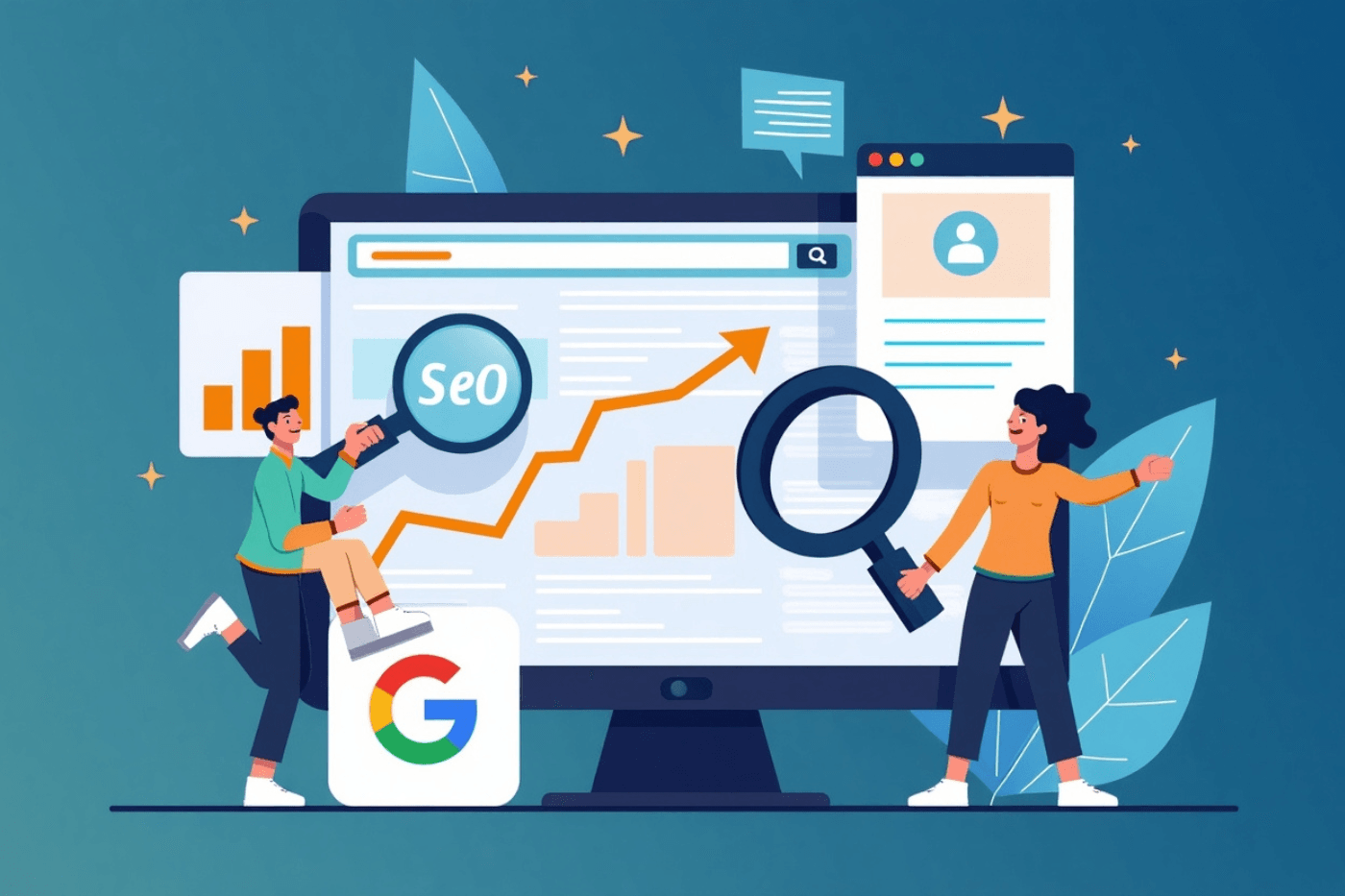
What is SEO? A Powerful Beginner’s Guide to Search Engine Optimization
January 16, 2025
Table of Contents
Introduction to SEO
Why is SEO Important?
How Search Engines Work
Key Components of SEO
On-Page SEO
Off-Page SEO
Technical SEO
The Benefits of SEO
Common SEO Myths Debunked
FAQs About SEO
Conclusion
Introduction to SEO
Have you ever wondered, What is SEO, and why does it matter? SEO, or Search Engine Optimization, is the practice of optimizing your website to rank higher on search engines like Google. By improving your site’s visibility in search results, you attract more organic traffic—visitors who find your site without paid advertisements. This guide will walk you through the basics of SEO, making it simple for beginners to grasp.
Why is SEO Important?
Search Engine Optimization is the backbone of digital marketing. Here are some reasons why:
Increased Visibility: Ranking on the first page of Google significantly improves your site’s visibility.
Credibility and Trust: Higher rankings build trust among users.
Cost-Effective Marketing: Organic traffic generated through SEO is free compared to paid advertising.
Improved User Experience: SEO optimizations improve site speed, navigation, and usability.
According to industry statistics, 68% of online experiences begin with a search engine, making SEO an essential tool for any business or freelancer.
How Search Engines Work
Understanding how search engines operate is key to mastering SEO. Here’s a simplified breakdown:
Crawling: Search engine bots crawl websites, scanning content and structure.
Indexing: The crawled data is stored in an index, which is essentially a vast database.
Ranking: When users perform searches, the search engine ranks indexed content based on relevance and quality.
Search engines like Google use algorithms to determine rankings. These algorithms evaluate factors such as keywords, backlinks, and user experience.
Key Components of SEO
On-Page SEO
This involves optimizing elements directly on your website:
Keyword Optimization: Use relevant keywords naturally in titles, headings, and content.
Meta Tags: Create compelling meta titles and descriptions.
Content Quality: Write engaging, valuable, and original content.
Internal Linking: Link to other pages within your site.
Off-Page SEO
Off-page SEO focuses on building authority outside your website:
Backlinks: Secure high-quality backlinks from authoritative sites.
Social Signals: Maintain a strong presence on social media platforms.
Brand Mentions: Gain recognition across various online channels.
Technical SEO
Technical SEO ensures that search engines can crawl and index your site effectively:
Site Speed: Optimize loading times for better user experience.
Mobile-Friendliness: Ensure your site is responsive and works on all devices.
Secure Sockets Layer (SSL): Use HTTPS for secure connections.
XML Sitemaps: Submit sitemaps to help search engines understand your site structure.
The Benefits of SEO
SEO offers countless advantages for businesses and individuals, such as:
Increased Organic Traffic: Drive consistent traffic without relying on paid ads.
Higher ROI: Compared to other marketing channels, SEO provides long-term value.
Global Reach: Attract audiences from around the world.
Competitive Edge: Outrank competitors in search results.
Common SEO Myths Debunked
Myth 1: SEO is a One-Time Activity
SEO is an ongoing process. Regular updates and optimizations are necessary to maintain rankings.
Myth 2: More Keywords Mean Better Rankings
Keyword stuffing can harm your rankings. Focus on keyword placement and content quality.
Myth 3: Paid Ads Improve Organic Rankings
Paid ads don’t directly influence organic rankings. SEO and PPC work independently.
FAQs About SEO
1. What is SEO in simple terms?
SEO is the process of optimizing your website to rank higher in search engine results and attract more organic visitors.
2. How long does SEO take to show results?
Typically, it takes 3-6 months to see significant improvements in rankings, depending on competition and strategies.
3. Is SEO better than PPC?
Both have their advantages. SEO provides long-term benefits, while PPC delivers instant visibility.
4. Do I need coding skills for SEO?
While coding knowledge helps in technical SEO, many aspects of SEO can be managed without it.
5. What tools can I use for SEO?
Popular tools include Google Analytics, SEMrush, Ahrefs, and Moz.
Conclusion
SEO is a game-changer for anyone looking to grow their online presence. By understanding what SEO is and implementing best practices, you can enhance your site’s visibility, credibility, and performance. Whether you’re a beginner or an advanced user, consistent effort in SEO will yield sustainable results. Remember, SEO is not just about search engines; it’s about providing value to your audience.
- In today's digital world, SEO (Search Engine Optimization) is essential for businesses and individuals to rank higher on search engines, drive organic traffic, and boost online visibility. This beginner’s guide will help you understand how SEO works and why it's crucial for staying ahead in the competitive online landscape.
Share It
Previous Post
Recent Posts
Categories

Your trusted partner in achieving digital marketing success through innovative strategies and personalized solutions.



